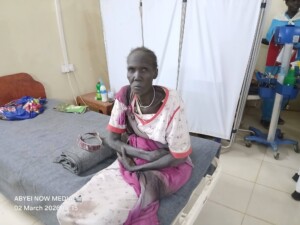Anita Gbeho new Unamid deputy representative
Anita Kokui Gbeho of Ghana has been appointed the new Deputy Joint Special Representative for the African Union-United Nations Hybrid Operation in Darfur (Unamid), succeeding Bintou Keita of Guinea.
 Anita Kokui Gbeho of Ghana, newly appointed Deputy Joint Special Representative for the African Union-United Nations Hybrid Operation in Darfur (UN)
Anita Kokui Gbeho of Ghana, newly appointed Deputy Joint Special Representative for the African Union-United Nations Hybrid Operation in Darfur (UN)
Anita Kokui Gbeho of Ghana has been appointed the new Deputy Joint Special Representative for the African Union-United Nations Hybrid Operation in Darfur (Unamid), succeeding Bintou Keita of Guinea.
UN Secretary-General Antonio Guterres and African Union Commission Chairperson Moussa Faki today announced the appointment of Gbeho.
Her previous work in Sudan entails chairing the Monitoring and Evaluation Unit in the Resident and Humanitarian Coordinators Office in Sudan (2006-2008) and Head of the liaison department in the Office for the Coordination of Humanitarian Affairs (OCHA) in South Sudan (2004-2006). She led the strategic planning process of the United Nations and partners for Sudan and managed the humanitarian and transition operations for South Sudan.
Before, Gbeho assumed the role of an Information Officer in Sudan in the years 1998 – 2000 and that of a Programme Officer in World Food Programme (WFP), in the same country, between 2000 and 2002.
Since 2015, Gbeho as served as Resident Coordinator/Resident Representative, UN Development Programme, Namibia, where she supported the Government of Namibia to coordinate its external development assistance through the UN Partnership and Namibian Development Frameworks.
Previously, Gbeho was Chief of Section for Africa I (2012-2015) and Head of Office for Somalia (2008-2012) with OCHA.
Unamid phase-out
“Unamid is working in greater collaboration than ever before, with the Government of Sudan and the UN Country Team to apply a more stabilization-oriented approach,” said the mission’s Joint Special Representative Jeremiah Mamabolo during a press conference in Khartoum in February.
He presented the highlights of the restructuring of Unamid operations in Darfur, as mandated by UN Security Council Resolution 2363, in February. “We have concluded the first phase of the mandated reconfiguration well within the timelines set by the UN Headquarters in New York and reduced our authorized ceiling for uniformed personnel to 11, 395 military and 2,888 police.
“Simultaneously, we closed and handed over to the Government of Sudan, 10 team sites and two community policing centres.” Currently, Unamid is in the process of implementing the second phase of the reconfiguration, which involves a further reduction of military personnel to 8, 735 and police personnel to 2,500 by 30 June 2018.











 and then
and then